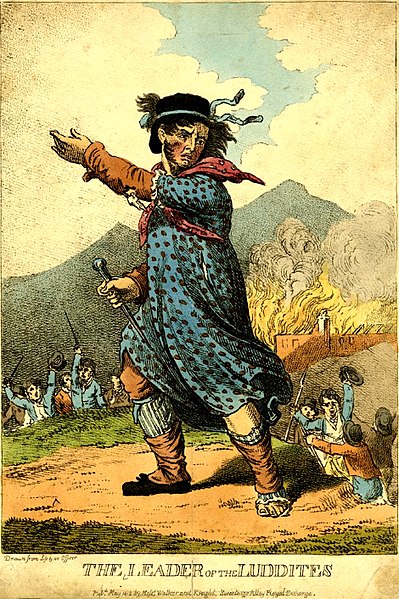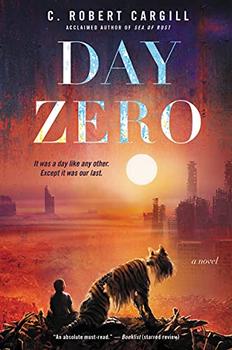Summary | Excerpt | Reviews | Beyond the book | Read-Alikes | Genres & Themes | Author Bio

Critics' Opinion:
Readers' Opinion:
First Published:
Oct 2019, 352 pages
Paperback:
Sep 2020, 366 pages
 Book Reviewed by:
Book Reviewed by:
Lisa Butts
Buy This Book
What will happen when homo sapiens is no longer the smartest being on the planet? In fiercely intelligent prose, Jeanette Winterson shows us how much closer we are to that future than we realize. Funny and furious, bold and clear-sighted, Frankissstein is a love story about life itself.
Since her astonishing debut at twenty-five with Oranges Are Not the Only Fruit, Jeanette Winterson has achieved worldwide critical and commercial success as "one of the most daring and inventive writers of our time" (Elle).
Her new novel, Frankissstein, is an audacious love story that weaves together disparate lives into an exploration of transhumanism, artificial intelligence, and queer love.
Lake Geneva, 1816. Nineteen-year-old Mary Shelley is inspired to write a story about a scientist who creates a new life-form. In Brexit Britain, a young transgender doctor called Ry is falling in love with Victor Stein, a celebrated professor leading the public debate around AI and carrying out some experiments of his own in a vast underground network of tunnels. Meanwhile, Ron Lord, just divorced and living with his mom again, is set to make his fortune launching a new generation of sex dolls for lonely men everywhere. Across the Atlantic, in Phoenix, Arizona, a cryogenics facility houses dozens of bodies of men and women who are medically and legally dead… but waiting to return to life.
Lake Geneva, 1816
Reality is water-soluble.
What we could see, the rocks, the shore, the trees, the boats on the lake, had lost their usual definition and blurred into the long grey of a week's rain. Even the house, that we fancied was made of stone, wavered inside a heavy mist and through that mist, sometimes, a door or a window appeared like an image in a dream.
Every solid thing had dissolved into its watery equivalent.
Our clothes did not dry. When we came in, and we must come in, because we must go out, we brought the weather with us. Waterlogged leather. Wool that stank of sheep.
There is mould on my underclothes.
This morning I had the idea to walk naked. What is the use of sodden cloth? Of covered buttons so swollen in their buttonholes that I had to be cut out of my dress yesterday?
This morning my bed was as wet as if I had sweated all night. The windows were misty with my own breath. Where the fire burned in the grate the wood hissed like a dejection of nature. I left...
Frankissstein is funny and delightfully weird. The author's penchant for flouting conventions and genre norms has been fully and completely realized in this magnum opus. The magic of the novel is its philosophical daring and imaginative construction. Winterson moves back and forth through time weaving together themes and symbols, and asking bold questions about the relationship between humans and machines...continued
Full Review
(643 words)
This review is available to non-members for a limited time. For full access,
become a member today.
(Reviewed by Lisa Butts).
 Margaret Atwood
Hilarious but serious time-travel gambol with Frankenstein: modern doubles into AI, cryogenics, and sexbots. (Hint: Mod. Byron does not come out of it well.)
Margaret Atwood
Hilarious but serious time-travel gambol with Frankenstein: modern doubles into AI, cryogenics, and sexbots. (Hint: Mod. Byron does not come out of it well.) In one narrative thread of Jeanette Winterson's Frankissstein, Mary and Percy Shelley and Lord Byron discuss the rebellion of the Luddites, a secret organization in early 19th century England that destroyed textile machinery in protest of automated looms taking jobs from hand-weavers. The uprising began on March 11, 1811, in Nottingham when weavers broke into a textile factory and destroyed equipment using sledgehammers and other implements. The next night brought further property damage at a factory in a nearby town, and the incidents continued to repeat all across northern England over the next two years. After the initial attacks, the protesters began conducting secret meetings to organize and plan further action. They claimed to be ...
In one narrative thread of Jeanette Winterson's Frankissstein, Mary and Percy Shelley and Lord Byron discuss the rebellion of the Luddites, a secret organization in early 19th century England that destroyed textile machinery in protest of automated looms taking jobs from hand-weavers. The uprising began on March 11, 1811, in Nottingham when weavers broke into a textile factory and destroyed equipment using sledgehammers and other implements. The next night brought further property damage at a factory in a nearby town, and the incidents continued to repeat all across northern England over the next two years. After the initial attacks, the protesters began conducting secret meetings to organize and plan further action. They claimed to be ...
This "beyond the book" feature is available to non-members for a limited time. Join today for full access.

If you liked Frankissstein, try these:

by C. Robert Cargill
Published 2022
In this harrowing apocalyptic adventure - from the author of the critically acclaimed Sea of Rust - noted novelist and co-screenwriter of Marvel's Doctor Strange C. Robert Cargill explores the fight for purpose and agency between humans and robots in a crumbling world.

by Bernardine Evaristo
Published 2019
"Joyfully polyphonic and vibrantly contemporary, this is a gloriously new kind of history, a novel of our times: celebratory, ever-dynamic and utterly irresistible." ―Booker Prize citation





The House on Biscayne Bay
by Chanel Cleeton
As death stalks a gothic mansion in Miami, the lives of two women intertwine as the past and present collide.

The Flower Sisters
by Michelle Collins Anderson
From the new Fannie Flagg of the Ozarks, a richly-woven story of family, forgiveness, and reinvention.

The Funeral Cryer by Wenyan Lu
Debut novelist Wenyan Lu brings us this witty yet profound story about one woman's midlife reawakening in contemporary rural China.
Your guide toexceptional books
BookBrowse seeks out and recommends the best in contemporary fiction and nonfiction—books that not only engage and entertain but also deepen our understanding of ourselves and the world around us.